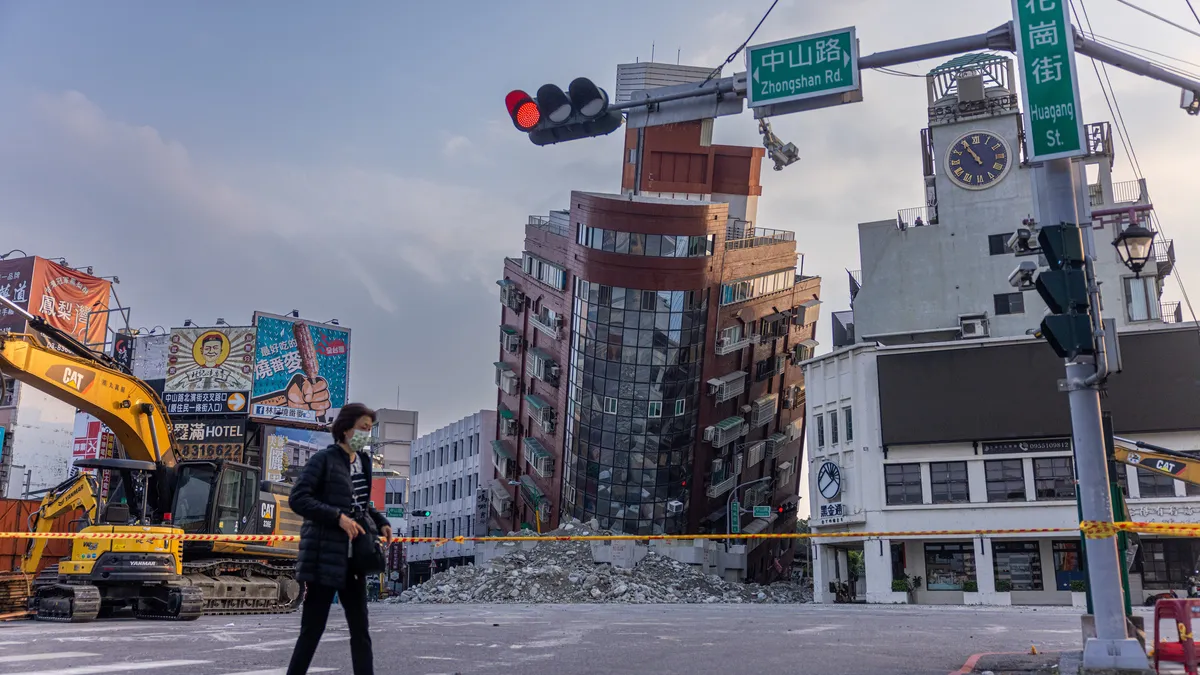As Taiwan continues to assess the damage of Wednesday's earthquake, the chip industry is weighing how severely the disaster could impact the global semiconductor supply chain.
The epicenter of the 7.4-magnitude earthquake was in Hualien County on Taiwan's east coast, killing a reported ten people and injuring at least 1,050 others as of Thursday.
Taiwan Semiconductor Manufacturing Company, which operates 14 sites on the island and several construction developments, evacuated some areas as a precautionary measure and paused production at some of its plants on the west coast. The company is currently evaluating the impact of the earthquake and while some production lines have been affected, “equipment in Taiwan fabs have largely been fully recovered,” the company said in a statement Friday morning.
The chipmaker noted that overall tool recovery reached 70% within 10 hours of the earthquake, though "a small number of tools were damaged at certain facilities, partially impacting their operations." It added that no critical equipment, including extreme ultraviolet lithography tools, were damaged.
"Certain production lines in areas which experienced greater seismic impact are expected to require more time for adjustment and calibration before returning to fully automated production," TSMC said in a statement.
Contract semiconductor maker United Microelectronics Corporation stated on Wednesday that the event had "no material impact" on its operations and that wafer shipments are resuming as normal after a brief pause triggered by automatic safety measures.
U.S. memory chip manufacturer Micron Technology noted it is currently evaluating any impact to operations and will communicate with customers about any delivery schedule changes once the review is complete.
Possible ripple effects to the global chip industry
Global chipmakers remain on edge regarding the impact of the earthquake, given Taiwan's role as the linchpin in the global semiconductor supply chain. The island is home to 92% of the world's most advanced chip production and 18% of global semiconductor manufacturing capacity, according to the U.S. International Trade Commission.
That level of global reliance could make even a small production delay send larger ripples throughout the semiconductor supply chain, impacting the likes of Apple, Nvidia, Samsung and Amazon, all of whom rely on TSMC.
"The economic impact should be moderate in the near term," Steve Cochrane, chief APAC economist at Moody's Analytics, said in a statement. "Much depends upon whether the semiconductor fabs find any damage, even microscopic, in their equipment that would cause production delays."
“Much depends upon whether the semiconductor fabs find any damage, even microscopic, in their equipment that would cause production delays.”

Steve Cochrane
Chief APAC Economist at Moody's Analytics
The disaster could impact some 58,000 parts that feed into 21,000 products in multiple sectors, said Peter Guinto, VP of government affairs at Resilinc. Guinto added that many of those impacted are lower-tier suppliers, meaning that it could take weeks or months to absorb the impact of any production delays.
"For end-buyers that don't have [their] network mapped out and don't have good communication with low-tier vendors, it will take them a long time to figure out that this wafer fab facility is part of their supply chain," Guinto said. "A small impact on a low tier that could have been prevented [then] becomes a larger impact."
Some experts see the disruption as yet another reason to better geographically diversify the semiconductor industry.
"The Taiwan earthquake demonstrates that concentration risk with suppliers is never an issue until an event like this happens," John Donigian, senior director of supply chain strategy at Moody's Analytics, said in a statement. "Diversifying suppliers from a geographic standpoint allows supply chains to be more resilient in these situations."
















